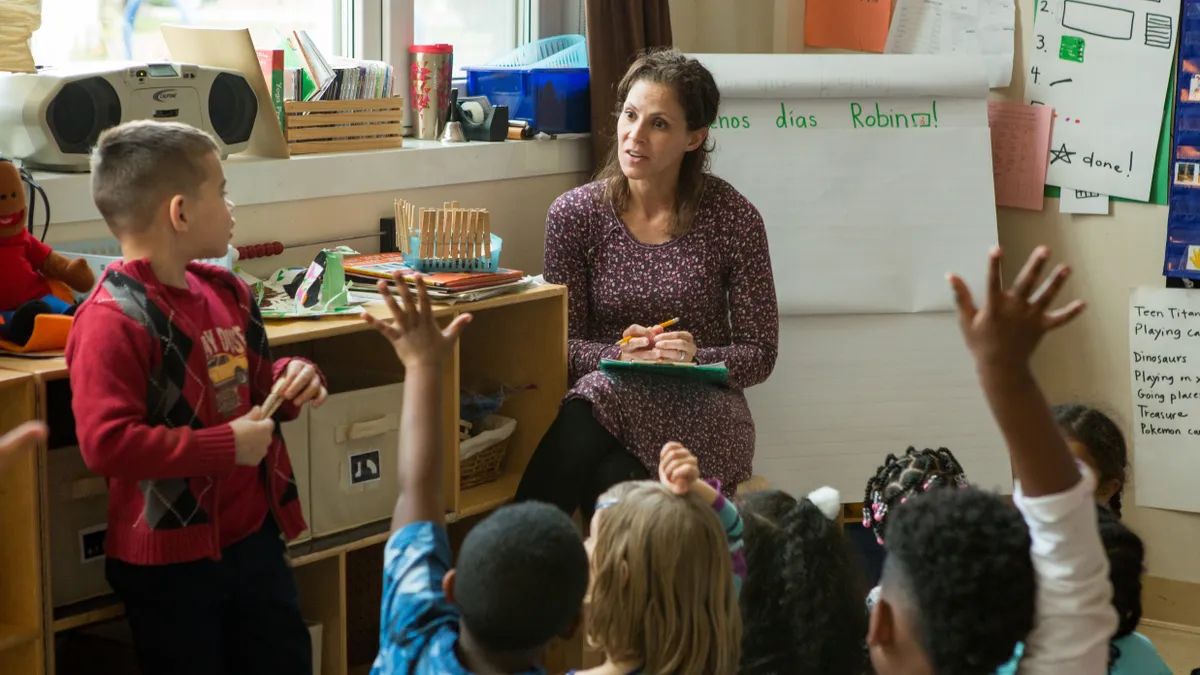Dive Brief:
- Justine Bruyère, a lecturer in the Reading Education and Elementary Education programs at Peabody College, Vanderbilt University, writes for Edutopia that during her time as an elementary teacher, her 2nd-grade students were excited when given the opportunity to identify and assign classroom responsibilities they felt were important.
- Students selected the roles they felt had the most need and then applied for the positions they wanted, and Bruyère writes that she had to adjust the chart periodically, as students occasionally wanted to take on a new role or needs changed in the classroom.
- Bruyère found that, while each task was never done perfectly every week, giving students a role in how their classroom was run taught them they have a voice that matters.
Dive Insight:
Helping students develop their voice and discovering that their opinions and observations matter is crucial in order for them to craft a sense of autonomy, self-reliance and self-motivation.
Efforts like those discussed by Edutopia can produce students who aren’t just willing to take the initiative in their academics and classwork, but also eventually in their daily lives when they move forward in their education — or in any direction they pursue.
Administrators and educational leaders are paying closer attention to student voice. In at least 20 states and territories, students have a seat on their state board of education. In turn, being involved at that level shows them how they can impact the education of other students, as well.
Even at the school and school district level, educators are looking to give students more say in their educational pathways. At Greece Central School District near Rochester, New York, for example, students are allowed to choose whether they want to change into physical education clothes or not.
Methods to build student voice can also be woven into curriculum. This may be attractive to educators as developing a sense of autonomy, and a strong voice can also help children strengthen their self-esteem and trust, positively impacting their mental health in the long run.
In Massachusetts' Sharon Public Schools, students recently created spoken word poems and competed in the district’s first ever poetry slam — an activity that can help develop self-confidence and self-awareness. At Hancock College Preparatory High School in Chicago, student journalists are learning how their voice can have an impact outside their own bubble.
Teaching students facts and information for their educational gain still has value, but so too does supporting their personal growth and sense of self.












